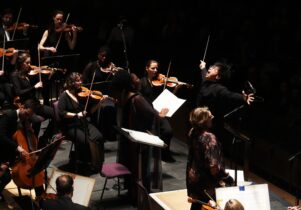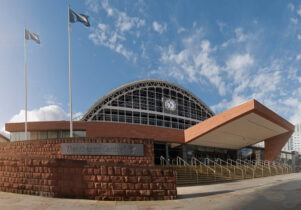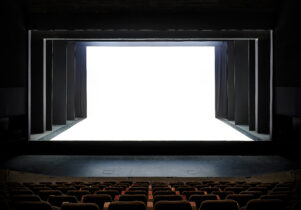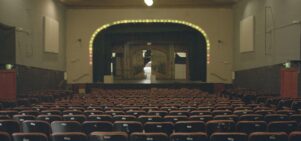BBC Philharmonic: 9 April at The Bridgewater Hall
Johnny James, Managing EditorBook now
BBC Philharmonic: 9 April
Always double check opening hours with the venue before making a special visit.

As part of Toward the Unknown Region, a complete symphonic cycle celebrating 150 years of Ralph Vaughan Williams, John Wilson returns to The Bridgewater Hall to conduct the BBC Philharmonic in two symphonies inspired by very different environments: London and the Antarctic.
Vaughan Williams’ A London Symphony – his second symphonic work, but the first wholly orchestral one – is a colourful portrait of our bustling capital in the years before the First World War. Owing its origin to George Butterworth, who instilled within Vaughan Williams the burning desire to write his first large-scale orchestral composition, A London Symphony is a four-movement work that paints with rich detail and sweet affection Vaughan Williams’ adopted city. That’s how it appears on the surface, at least; for beneath these evocative city scenes there lies a lurking solemnity, particularly notable in the finale’s procession-like movement, and darkened tones. In hindsight, there’s an uncanny sense of a prescient memorial to the lives that would soon be lost to the war.
On the other side of Vaughan Williams’ symphonic output, and on the other side of the world, we have his Symphony No. 7, better known as Sinfonia antartica – an immensely evocative work part-drawn from music the composer wrote for the 1948 film Scott of the Antarctic. This time, Vaughan Williams brings back the voice: soprano solo and women’s chorus, with Sarah Fox and Ladies of the Manchester Chamber Choir taking those roles tonight. And Manchester is a fitting place for this performance; the symphony premiered at the city’s Free Trade Hall in 1953, under the baton of Hallé Music Director John Barbirolli. The use of wordless women’s voices to conjure ethereal images of polar winds, and a deafening organ to depict mighty glaciers caught the public imagination right from the first, and we’re in no doubt that it will again tonight.
Part of Toward the Unknown Region – RVW150.




























